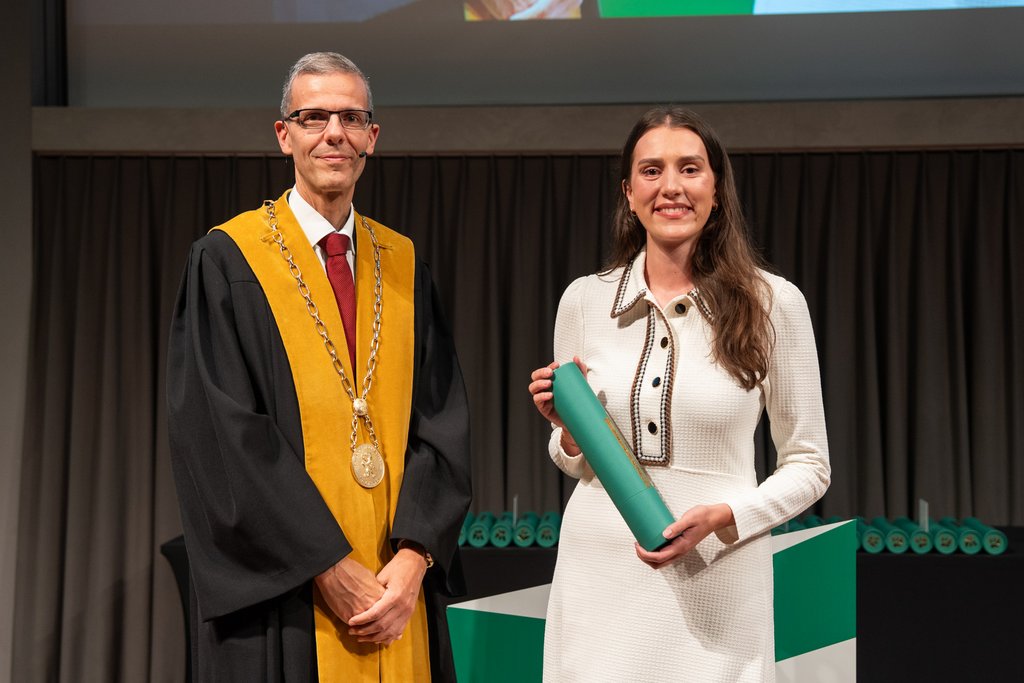Campus - 22.09.2025 - 15:00
Three to five years of intensive research. Then the award. “You fought your way through, you persevered. Today you hold your doctoral degrees in your hands,” said President Prof. Dr. Manuel Ammann.
The doctoral graduates received their degree certificates in the following subjects:
Several prizes were also awarded at the doctoral ceremony in the autumn semester:
Doctorates are not only a great achievement, but also an opportunity to take on responsibility in the future – to use one's own knowledge and acquired skills for the benefit of the economy and society, said President Ammann in his speech. He explained that it is not just a matter of performing tasks in the context of new activities, but of making decisions courageously and consciously, justifying them and taking responsibility for their consequences. Global networks do not relieve us of our personal responsibility Manuel Ammann emphasised. Responsible leaders are particularly important in times of great uncertainty.
President Manuel Ammann concluded his speech with the following words, “Responsibility is not a burden, but an honour. It is an expression of the trust placed in you, dear doctors.”
Dr. Gunnar Hauptmann, deputy managing director and programme manager of the St. Gallen Symposium, began his speech with an anecdote: "Many years ago, my father told me about a trip he took through Colorado. There was an old gold mining town there – possibly Cripple Creek – and at the town gate there was an unusually large cemetery. During the gold rush in the 1850s and 1860s, so many people died that the cemetery was twice the size of the town itself. During a visit to an old mine, he noticed a cross that read: Joe [surname], 1817–1848, leaves behind a wife and two daughters – hanged on 3 March 1848. Beneath it was a sober, uncomforting note: Joe was wrongfully hung – Sorry Joe."
Sorry Joe. According to Gunnar Hauptmann, these shockingly succinct words illustrate how serious the consequences can be when the full truth is unknown or not accepted. He drew a parallel to the present day by stating that in a world full of challenges and upheaval, where information is often incomplete or distorted, it is more important than ever to ask the right questions.
Gunnar Hauptmann also found that the right question were being asked by the doctorates, whose relevance and thematic breadth impressed him: whether artificial intelligence and digital technologies, sustainability and climate change, or migration and naturalisation. But where to start in a still globalised world? The answer is: start locally. “Ask yourself,” explained Hauptmann, “what can I do right here where I am?” People would notice, and over time, this could lead to greater, even global responsibilities. He then encouraged the recent graduates: "Do something unique, make yourself irreplaceable, or at least difficult to replace.”
Images: Foto Lautenschlager GmbH
